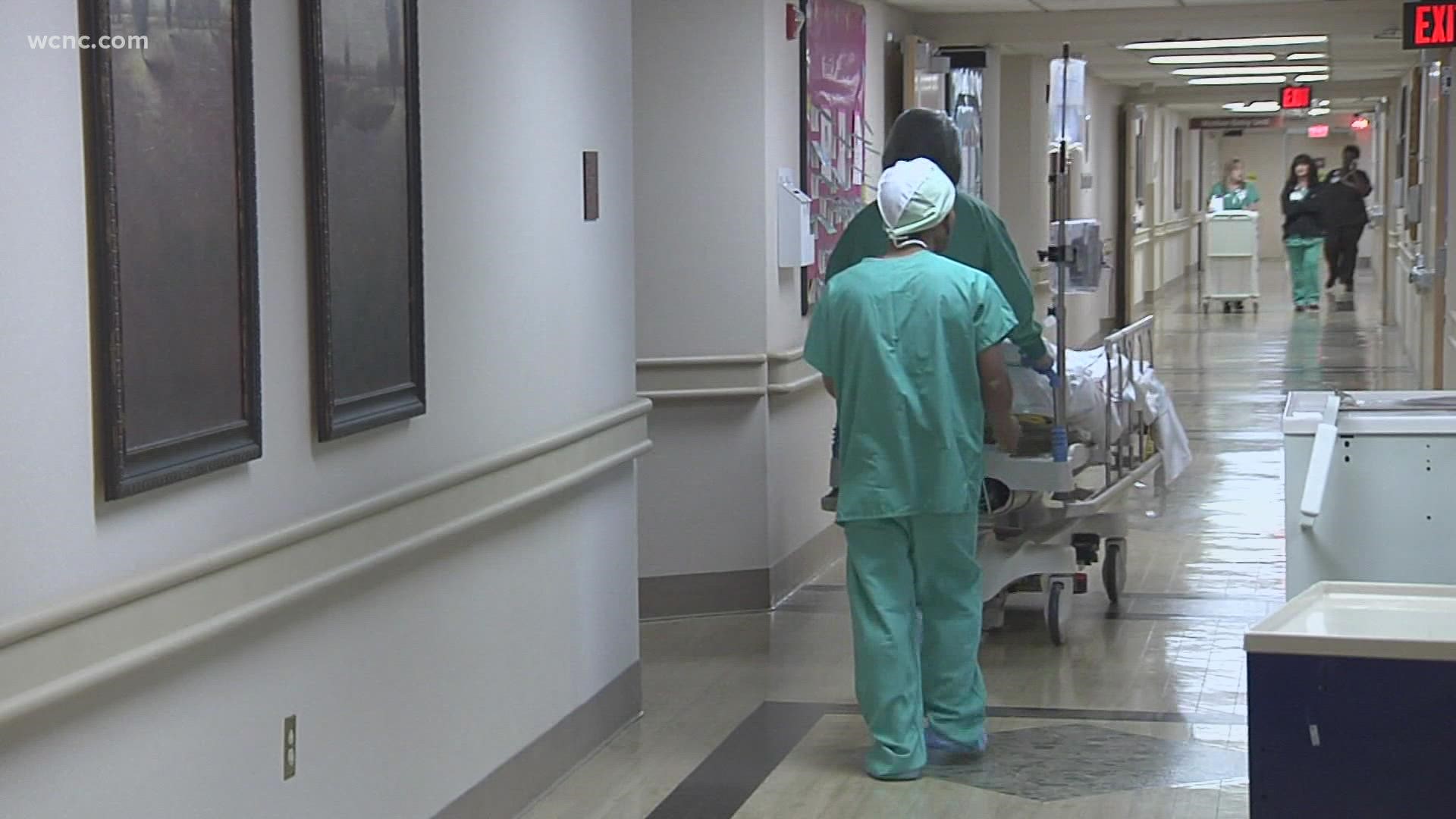CHARLOTTE, N.C. — After a brief hiatus in COVID-19 updates over the Christmas holiday, North Carolina's Department of Health and Human Services has updated the state's coronavirus metrics showing large rises in some data points.
Of note, the number of infected people needing hospital care increased by nearly 100 from Sunday to Monday. The hospitalization count sits at 1,992.
The two-week average positivity rate is now in double-digits with more than one in 10 COVID-19 tests detecting an infection. Sunday's daily positivity rate, on its own, was a whopping 22%. However, with the below-average testing volume on the day and delayed test results, it is possible that rate could be slightly inflated and could also decline as more results return in the coming days.
North Carolina is averaging roughly 4,500 new coronavirus cases a day over the last two weeks, which is up 32% from the week before.
While the numbers are trending in the wrong direction, North Carolina is still sitting below prior peaks it has seen over the course of the pandemic.
Average daily cases are about 56% of its all-time record, while the state's coronavirus patient load is at 50%, showing fewer people with coronavirus are ending up in the hospital this time.
In North Carolina, 62% of the vaccine-eligible population (5-year-olds and older) are fully vaccinated. One of the state's most COVID-vulnerable groups, those 65 and older, are 91% fully vaccinated.
According to the CDC's Tuesday update on variant proportions, omicron is still the dominant strain of the virus nationwide, making up nearly 60% of new cases in the U.S. That presence is down from last week's report, which showed the more-contagious variant made up more than 70% new cases.
In North Carolina, the most recent CDC data update from Tuesday shows the delta variant still makes up 99% of new cases statewide; however, the CDC's state variant dashboard shows the data used in that update are running a couple of weeks behind the data used in its nationwide and regional variant updates. The percentage of cases caused by the omicron variant in North Carolina is likely higher given national trends.
Contact Vanessa Ruffes at vruffes@wcnc.com and follow her on Facebook, Twitter and Instagram.
WCNC Charlotte is part of seven major media companies and other local institutions reporting on and engaging the community around the problems and solutions as they relate to the COVID-19 pandemic. It is a project of the Charlotte Journalism Collaborative, which is supported by the Local Media Project, an initiative launched by the Solutions Journalism Network with support from the Knight Foundation to strengthen and reinvigorate local media ecosystems. See all of our reporting at charlottejournalism.org.

